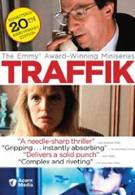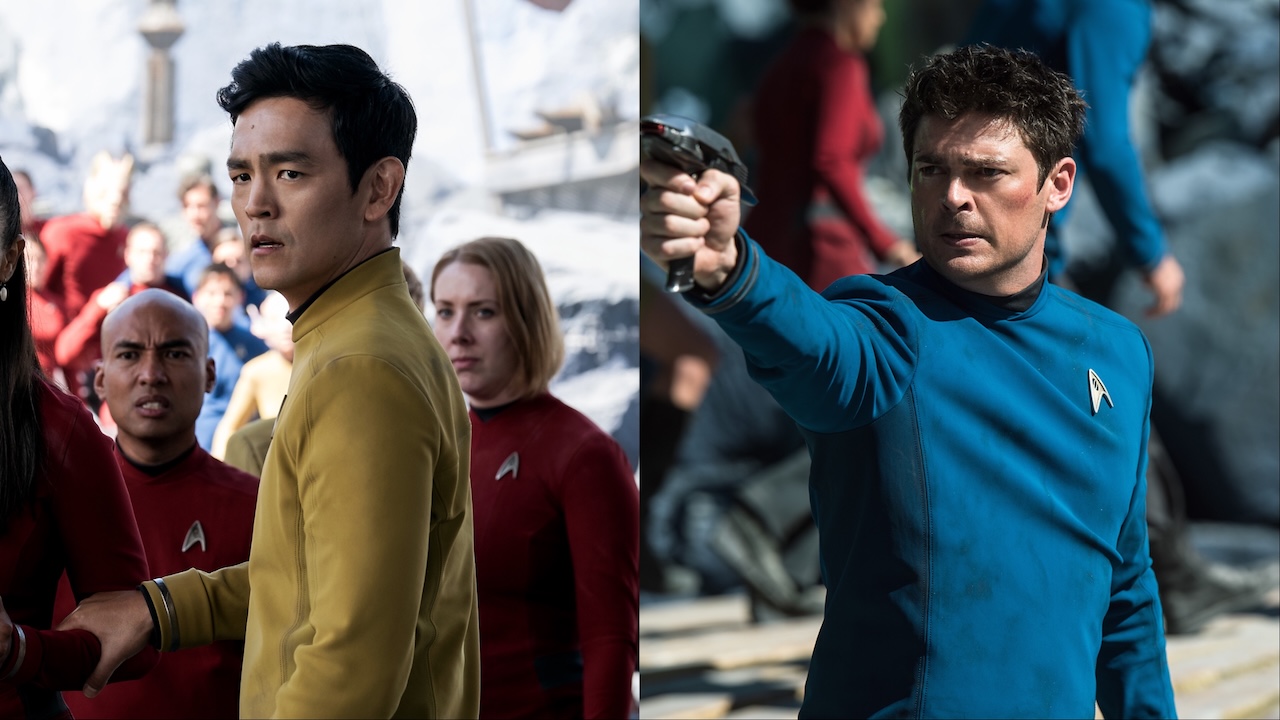Long before it was used as the basis for Steven Soderbergh and Stephen Gaghan’s 2000 narcotics opus, the 1989 British miniseries Traffik was earning raves for its stark and complex portrayal of the heroin trade. Now Acorn Media has brought the six-part BAFTA award-winning original back to DVD in a remastered 20th-anniversary DVD set. What’s surprising about Traffik isn’t so much that it remains timely and well-made, but that the insights it offers stretch far beyond the still-ongoing “War on Drugs.” While Traffik won a stack of awards and critical acclaim that has kept it well regarded for two decades, most American audiences upon seeing the title would probably assume it’s just a typo of the more mainstream Traffic. That’s a shame, because while Soderbergh and Gaghan’s sprawling narco-drama was a solid and serviceable flick, it can’t hold a candle to the depth and nuance of the original miniseries. It’s understandable. Traffic is slick and flashy and has movie stars. Traffik is low-budget and six hours long and very, very British. It’s also better. Sure, Traffic falls squarely in the “success” column when it comes to British-to-American adaptations, but now that there’s a snazzy new release of the original out, none of us who have been “meaning to see that” for years have any excuse – and that includes me.
Unsurprisingly given its format, Traffik stretches across multiple locations and protagonists. Bill Paterson is British Home Office minister Jack Lithgow, on the forefront of his country’s war on drugs until that war arrives at his doorstep in the form of his daughter’s (Julia Ormond) heroin addiction. German businessman Karl Rosshalde’s (George Kukura) life is thrown into turmoil when he is accused of being a drug smuggler, leaving his wife (Linday Duncan) to discover the truth, and then discover just how flexible her own morality can be. Fritz Müller-Scherz and Tilo Prückner are two German cops whose case strives to take Rosshalde down. And in Pakistan, poppy farmer Fazal (Jamal Shah) finds himself caught in the middle of a drug war he doesn’t understand, eventually turning to working with a local drug lord (Talat Hussain) after his crop is destroyed.
By casting its character net wide, Traffik examines all sides of the drug debate, and never allows itself any shortcuts or easy moral assumptions. The terrible toll drug abuse can take on individuals is painfully demonstrated by the disintegration of the relationship between Paterson and his daughter. But neither is the plight of the Pakistani farmers shortchanged, forced to grow poppies for opium traffickers because it’s the only crop that allows them to make enough money to survive and support their families. It even makes a somewhat sympathetic character out of Linday Duncan’s Helen, a former Olympic swimmer whose drive and determination finds a new focus in taking over her husband’s drug empire and orchestrating his defense. While her actions are supporting an illegal enterprise, for her it’s not a question of morality; it’s a question of saving her husband, regardless of what he was responsible for. Like the best storytelling, Traffik never apologizes, never defends, simply presents and leaves it to you to draw your own conclusions.
And whatever preconceptions you come to Traffik with, you’re likely to find them challenged. While it would be easy for such a large story to focus on the big questions at the exclusion of the human element, the series never loses its grounding in character. You’ll learn more than you ever wanted to know about the mechanics of heroin trafficking (at least the state of the art circa 1989), from the simple but brilliant ways smugglers sneak it across borders to the surprising mundanity of the ground-level production process. More importantly, however, you’ll watch as a father’s high moral ground is compromised when his daughter’s addiction puts a human face on the problem he’s been tasked with solving. His growing realization that the problem may be impossible to solve, but certainly can’t be solved with the government’s black-and-white policies, calls into question everything he has taken for granted up to that point. And in a darkened parallel, you’ll watch as a farmer compromises himself down a violent path that he never expected, and in the process loses much of what he hoped to preserve.
The miniseries makes good use of its relatively low budget, convincingly portraying the series’ epic scope across multiple locations. Performances are solid across the board, with the excellent cast taking us across the spectrum of human experience with complex, layered characters. Even if it were only an excellent story well told and a time capsule of one particular cultural struggle, it would be worth your time. However, given how many parallels exist between the “War on Drugs” and our own ongoing “War on Terror,” Traffik still speaks with an immediacy that surpasses production dates, budgets, and nationalities. This set touts being “remastered” for this anniversary release, but not having seen the original, it’s hard to say how much of a difference that process has made. Two versions of the final episode – the British original and an edited cut that was show Stateside – are included, and the uncut version hasn’t been remastered, so if you’re itching for a comparison, there’s your side-by-side. Suffice to say the show looks about as good as you can expect for a 20-year-old British miniseries, but that’s not really the point. The attraction here is the content, not the picture quality, and there’s plenty to distract from any visual quibbles.
The set’s main attraction on the special-features front is the “Making of Traffik” featurette, a 12-minute sit-down with series writer Simon Moore and producer Brian Eastman. They discuss the series’ creation, production, and impact, interspersed with footage from the show. It’s nothing remarkable, but it should answer most of your basic questions you might have about Traffik’s origins.
Answering the elephant in then room of the show’s more famous offspring, the “From Traffik to Traffic” text featurette tracks how the American adaptation came together over the years, and the changes that were made, such as moving the narco-trade storyline from Pakistan to Mexico. It’s a shame that they couldn’t have put it together as an actual mini-doc or something, but then again too few people read these days anyway, and if you’re going to complain about slogging through a few screens of text, I have nothing to say to you.
Your Daily Blend of Entertainment News
The aforementioned “original broadcast cut” of episode six will get you around 10 minutes not seen in the American version, and quite frankly the fractional difference in picture quality leaves me wondering why they bothered including the edited version. Stick with the longer cut.
Finally, the set includes a photo gallery and cast bios, which are one of the only things that ranks below trailers on the “interesting special features” spectrum.

